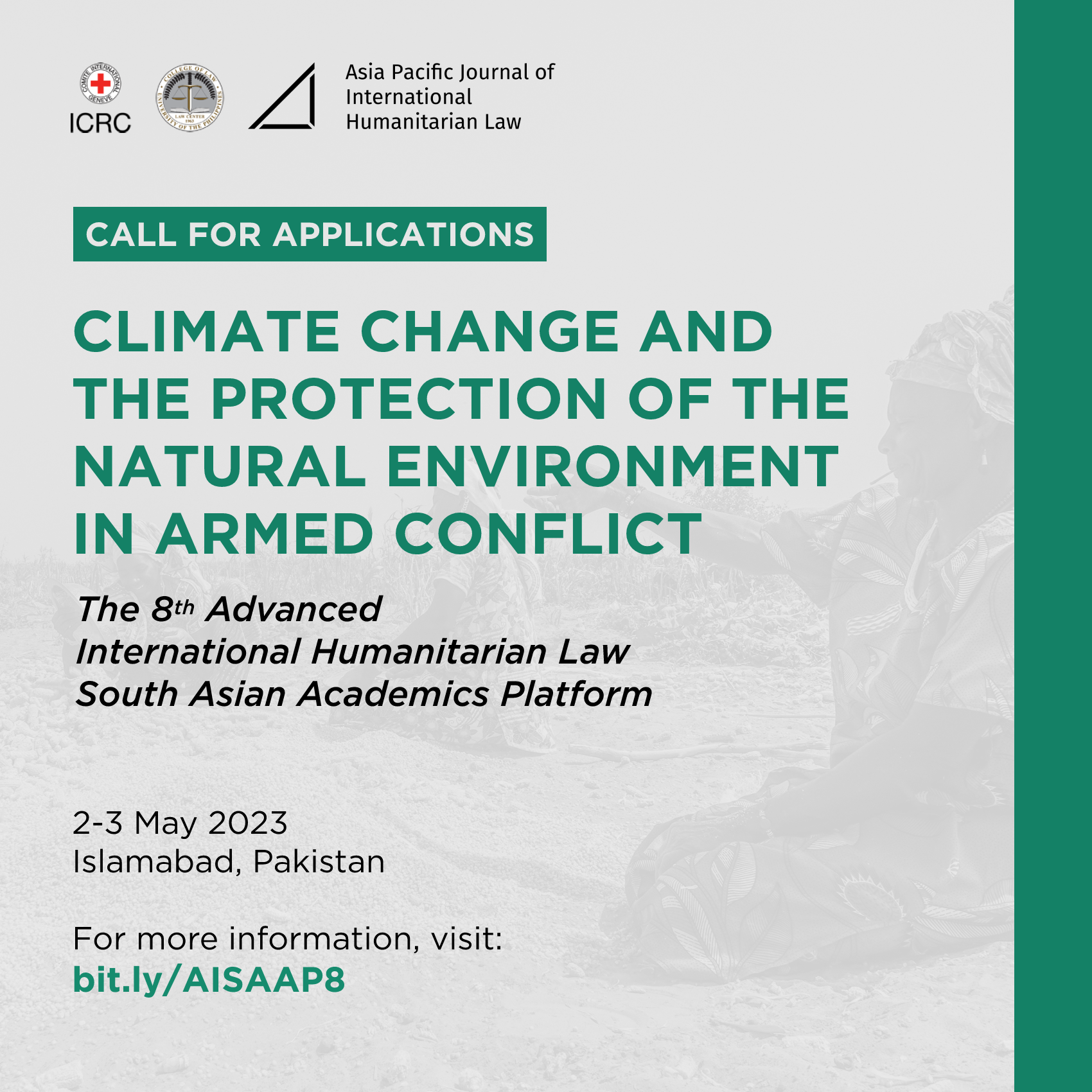The International Committee of the Red Cross (ICRC) is pleased to announce the 8th Advanced International Humanitarian Law South Asian Academics Platform (AISAAP), inviting scholars from countries in South Asia and Iran to submit their papers on the topic of ‘Climate change and the protection of the natural environment in armed conflict’.
The AISAAP was initiated by the ICRC in 2011 with the aim of promoting the study of IHL amongst academicians from different universities in South Asia and Iran. The event envisages paper presentations and discussions on current developments in the field of IHL. The AISAAP aims to foster greater awareness on humanitarian issues amongst the academic community and to promote a space for Asian perspectives in the global discourse. It also provides a platform for academicians to forge networks among experts in the region from different universities in South Asia and Iran.
Successful candidates will be invited to present at the 8th edition of AISAAP on 2-3 May 2023 in Islamabad, Pakistan, and to publish their work in the Asia-Pacific Journal of International Humanitarian Law (APJIHL).
The topic can be tackled from different angles, including – but not limited to the following:
- The correlation between climate change and armed conflict (international or non-international armed conflict);
- General IHL rules and principles, and their link to climate change and the environment;
- Adapting IHL implementation to respond to climate change;
- Legal challenges linked to climate change and displacement, and non-refoulement in armed conflicts;
- Climate change, water and conflict;
- Gendered impact of climate change and armed conflict;
- Environmental migration caused or exasperated by armed conflict;
- Applicable legal framework during armed conflicts in relation to climate change;
- Common Article 1 of the Geneva Conventions: States’ obligation to respect and ensure respect with regards to climate change;
- Non-State armed groups (NSAGs) and their IHL obligations in relation to climate change;
- IHL’s conduct of hostilities obligation to have due regard to the protection and preservation of the natural environment: What are the implications for taking climate impact into account?
- Explosive remnants of war and their impact on the natural environment;
- New IHL Guidelines on the Protection of the Natural Environment in Armed Conflict: Identifying relevance for climate and/or water crises;
- How does IHL address the cumulative complex humanitarian impact of conflict and climate change?
- Assessing the role of the civil society and humanitarian organizations, specifically, the International Movement of the Red Cross and Red Crescent, to adequately respond to climate change and support the resilience of populations to adapt to the cumulative impact of climate risks and conflicts; and
- IHL implementation and other national measures to tackle climate change and safeguard the environment in States with armed conflicts or other situations of violence (OSV) – what is there and what is needed.
Interested candidates are invited to fill in the online form at https://bit.ly/AISAAP8Application by 28 February 2023.
For more information, visit the ICRC New Delhi page at https://bit.ly/AISAAP8.


